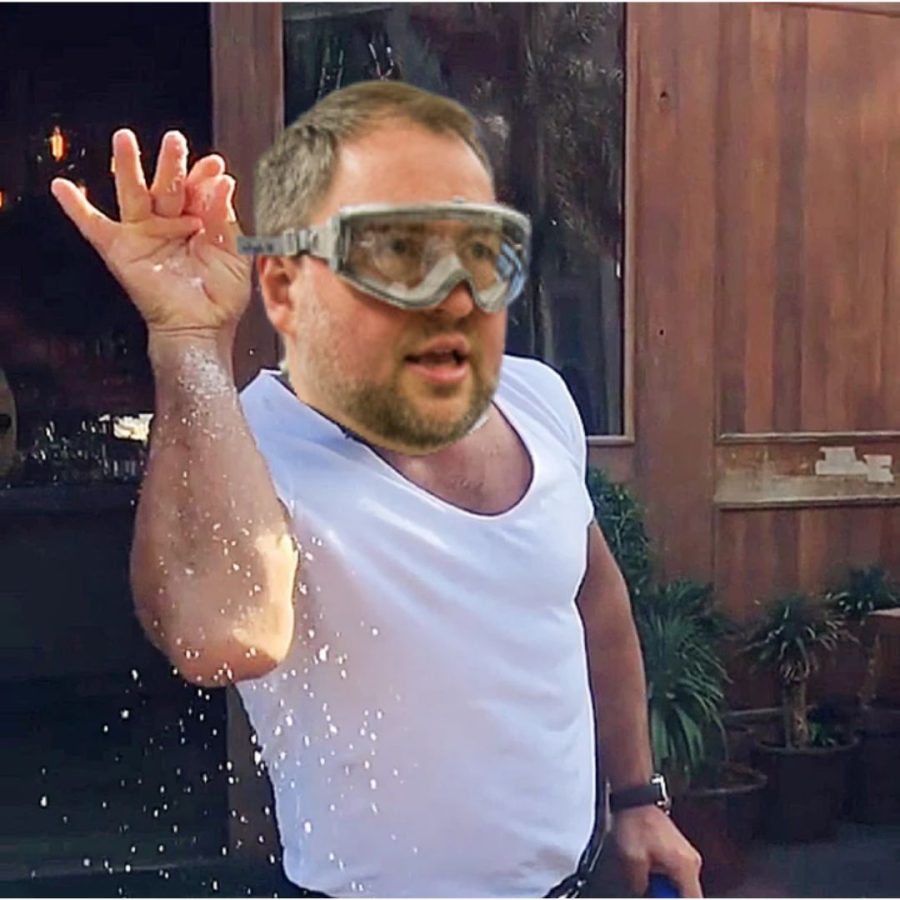“Zesty” Mini-Seminars Are Coming to a Classroom Near You
Mr. de Grys likens mini-seminars to a seasoning enhancing the flavor of Lakesiders’ other classes and extracurriculars.
Think of your favorite Lakeside class. What could make it even better? No homework? No grades? Even more diverse topics? The administration has heard feedback through Tatler and the Curriculum Committee from students who want more out of their Lakeside education. Specifically, there has been high demand for the ability to take more classes and learn without the pressure of grades, and for that reason, Lakeside will be piloting mini-seminar courses during the 2023-24 school year.
Mini-seminars will essentially be half-courses. Classes will meet half as often as a regular class: once or twice per week. All of them will be credit/no credit, with no prerequisite classes and no homework, and will count for 0.25 credits, half as much as a regular class.
But the true excitement of mini-seminars is found not in the logistics, but the content. According to Mr. de Grys, the administration is prioritizing “zesty” interdisciplinary and unique courses that fall outside of the traditional department bureaucracy. Faculty, staff, and administrators with specific skill sets or interests are encouraged to create mini-seminars based on the topics they are most passionate about.
In Mr. de Grys’ Upper School Employee Meeting where he announced the seminars, he spotlighted a list of potential ideas. Though only theoretical classes, the list features a range of classes dealing with STEM, art, and…murder? Ah, it’s about forensics. Following the meeting, teachers have begun submitting their course proposals.
One example of a proposed course is Mr. Salter’s idea for a mini-seminar called Songwriter’s Laboratory. Songwriting is a hobby of his, and he wants to create a space for people with a range of experience to work together. “It’ll also be an opportunity to look at songs and song structure — what makes a rock song, or a hip-hop song work — and take that understanding and apply it to original music,” he explains.
The regular Lakeside curriculum changes relatively slowly (with it taking nearly two years for a class to go from idea to reality), but mini-seminars will be proposed and changed on a much shorter time frame, allowing for more flexibility. Normally, starting a new class requires a lengthy approval process with the Curriculum Committee, which only meets in October. In contrast, “mini-seminars are not part of the core curriculum or the graduation requirements, and thus don’t need approval from the Curriculum Committee,” says Mr. de Grys. Thus, mini-seminars can also serve as testing grounds for ideas that could potentially become full classes in the future.
On top of curricular innovation, the administration also hopes that mini-seminars will be an opportunity for students to step out of their comfort zones. Often, graduation requirements, college’s looming presence, and the pressure of grades dissuade students from taking classes they’re interested in. Mini-seminars aim to remedy this with their lack of grades, lower time commitment, and greater accessibility.
So, when can students expect to have the menu of mini-seminar offerings in front of them? Signups for fall semester mini-seminars will happen as soon as August, although students will be limited to taking mini-seminars at times when they don’t have other classes. Schedule changes to accommodate mini-seminars might be possible, says Mr. de Grys, but “this would be the lowest-priority kind of schedule change.”
There will be a second signup period in January for spring semester seminars, and after two semesters of piloting the program, the administration will decide whether to continue it for the 2024-2025 school year.
For those looking for some additional spice in their course list, mini-seminars promise to be an exciting supplement. A sprinkling of seasoning on the Lakeside buffet, if you will. From songwriting to short stories, Lakeside will now, truly, have it all.
Review: Lucy: The Movie (★★★★☆)
Released in 2006, Lucy was an instant classic the day she hit movie theaters. The movie’s character development...
Review: Zane: The Movie (★★★★☆)
Released in early 2006, Zane quickly became a fan favorite. A charming and lovable fella, Zane has captured...

